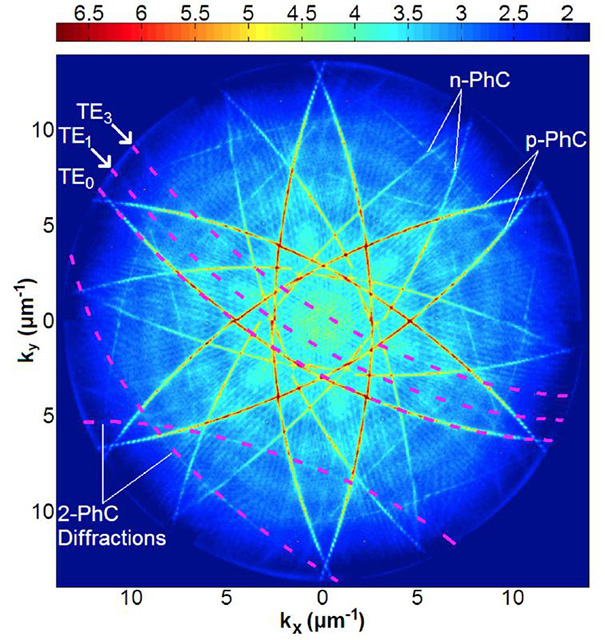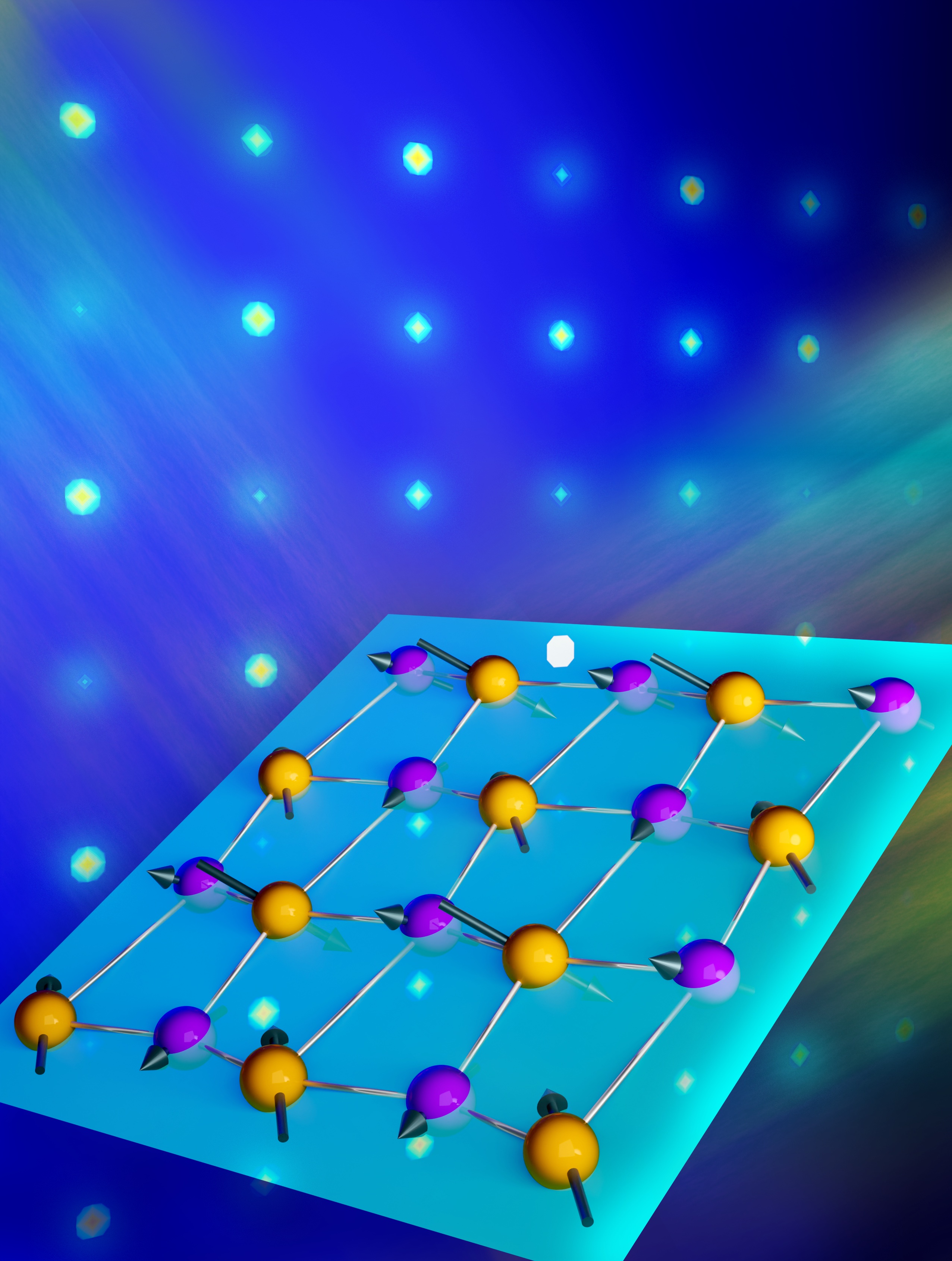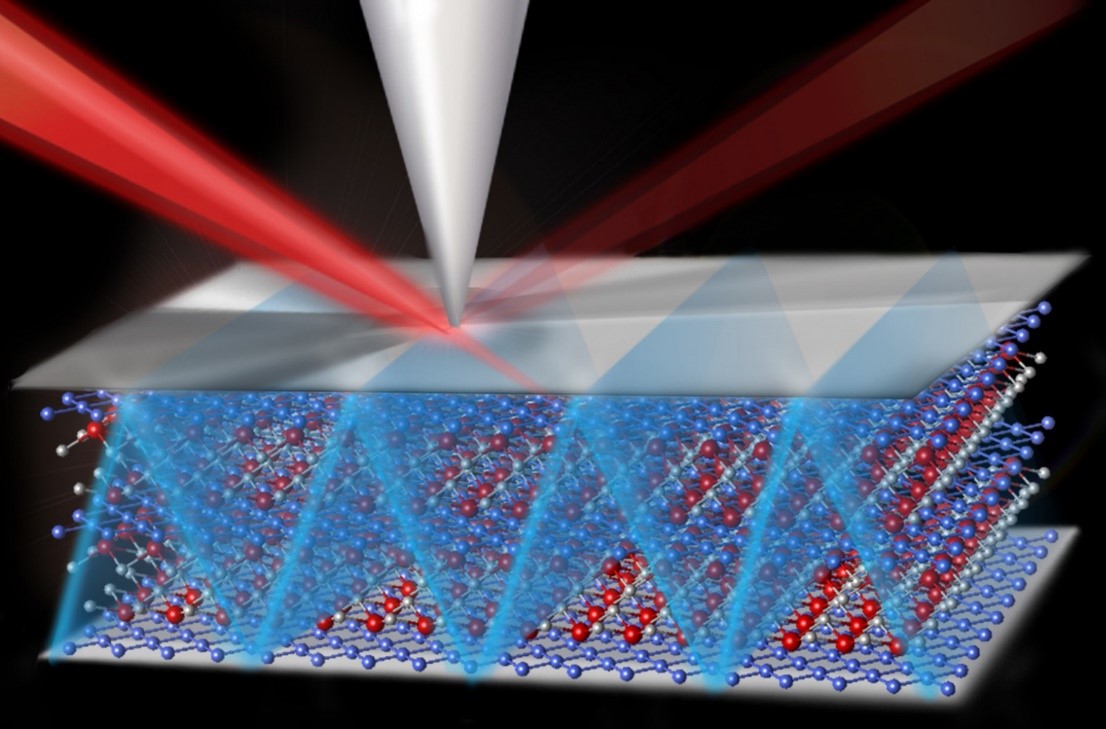Enhancing the Output of LED Lighting
Adding nanostructured regions to boost LED light output.

The Science
By constructing light emitting diodes (LEDs) with two regions of embedded photonic crystal nanostructures, researchers increased the extracted light output efficiency, improving the performance of the LEDs.
The Impact
The ability to focus and increase light output opens the door to more efficient, brighter, and cooler operating temperature LEDs.
Summary
Light emitting diodes (LEDs) are beginning to have significant market penetration as sources of lighting in both residential and commercial applications. However, widespread deployment awaits further reductions in cost and improvements in efficiency. An LED’s performance depends on the details of the electronic and optical properties of its structure, which includes all materials: active, passive, semiconductors, metals, and insulators. One way to control and modify the LED performance is to structure the materials to incorporate a photonic crystal, a nanostructured region that modifies an optical medium to extract the light which would otherwise remain captured within the LED. Researchers at the Center for Energy Efficient Materials EFRC at University of California, Santa Barbara fabricated photonic crystals below and above the active regions of LEDs to improve their efficiency and enable new physical properties, including increased light directionality and polarization. The advantages of this device design are confinement of most of the guided light away from absorbing layers and an increased interaction between guided light and the photonic crystal regions. For this configuration, extraction efficiency improved by 40%. The fabrication of the embedded photonic crystals required specialized, multistage metal-organic chemical vapor deposition. This new design significantly increases the probability for light extraction, and thus is leading the way to improved LED performance and efficiency.
Contact
Claude Weisbuch
University of California Santa Barbara
weisbuch@engineering.ucsb.edu
John Bowers
Director, Center for Energy Efficient Materials (CEEM) EFRC
bowers@ece.ucsb.edu
Funding
DOE Office of Science, Basic Energy Sciences, Energy Frontier Research Centers (EFRC) Program; S.-C.H. supported by the Solid State Lighting and Energy Center at the University of California-Santa Barbara; Y.-L.H. supported by DARPA.
Publications
J Jewell, D Simeonov, S-C Huang, Y-L Hu, S Nakamura, J Speck, and C Weisbuch, “Double embedded photonic crystals for extraction of guided light in light-emitting diodes.” Applied Physics Letters 100, 171105 (2012). [DOI: 10.1063/1.4705735]
A David, H Benisty, and C Weisbuch, “Photonic Crystal Light-emitting Sources.” Reports on Progress in Physics 75, 126501 (2012). [DOI: 10.1088/0034-4885/75/12/126501]
Related Links
Center for Energy Efficient Materials (CEEM) EFRC
Highlight Categories
Performer: University
Additional: Technology Impact , Collaborations , Non-DOE Interagency Collaboration



